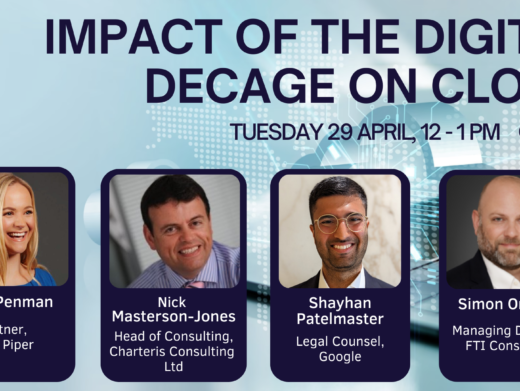April was an important month for Sustainability and ESG, especially the environmental aspect. On 4 April, the Intergovernmental Panel on Climate Change (IPCC) published its fifth report which warns how decisions taken this year will be crucial to determining whether limiting warming to 1.5 degrees above pre-industrial levels is achievable.
The second part of the UN Biodiversity Conference (COP15) in China was also due to start last month, three days after Earth Day on 22 April. Unfortunately, however, on 19 April it was announced that COP15 has been postponed for a fourth time, until the third quarter of 2022 (exact dates to be determined). It’s no secret that global biodiversity loss is a huge threat and it’s happening at an unprecedented rate. The Living Planet Report by WWF in December 2020 highlighted how serious the issue is.
According to the Living Planet Index, between 1970 and 2016 there has been an average 68% decrease in population sizes in mammals, birds, amphibians, reptiles and fish. Yet, we cannot even get close to “solving” the climate change issue if we do not reverse this decline in biodiversity. The big question is: how can we begin to tackle these huge, complex problems more effectively?
As SCL members, a key consideration is where does technology and the law fit in to this, both as enablers and potential blockers to progress? Closely linked to these challenges is the thorny issue of greenwashing. Following publication of the CMA’s Green Claims Code in September 2021, it’s clear that much more care needs to be taken here. Greenwashing can, of course, be unintentional and sometimes it stems from over-zealous marketing alone. But the dial has shifted and consumers are increasingly likely to vote with their feet. Getting it wrong destroys trust and causes reputational damage which tends to be long-lasting.
The prominence of Social and Governance issues is also gathering pace within organisations. Not just on a proactive level through community engagement programmes, but also on a more reactive level in line with current world events. This has been heightened further in the wake of the global pandemic and the devastating ongoing war in Ukraine.
Much is happening. So, six months on from the launch of the SCL Sustainability and ESG Group, for this special edition of the magazine, we’ve put together a collection of pieces we hope will give you a flavour of some recent key Sustainability and ESG issues particularly relevant to law and tech.
The good news is that lawyers have the skillset, influence and, increasingly, the budget and tools to get fully behind Sustainability and ESG initiatives and play a key role in driving change. In-house Counsel are well placed to help their organisations navigate this space in a more impactful way. Private practice lawyers also have an increasing part to play in recognising the relevance of Sustainability and ESG considerations and flagging their significance to clients.
In this issue, we consider ways to shape and influence stakeholders and clients to improve sustainability in procurement and lessen supply chain impacts (without greenwashing). We also share some top tips for drafting modern slavery statements.
The evolution of contract drafting and precedents in this space is another clear area of influence. We were honoured to have some time with Matt Gingell, founder of The Chancery Lane Project (TCLP), to chat about the inception of TCLP and learn about how it provides a catalyst for achieving better contracts from an ESG perspective through greater collaboration and innovation across the globe.
Other topics covered in this issue include the environmental impacts of tech and the top five “E” innovations expected this year as well as incentives for change and some potential challenges. This includes a discussion about the continued exploration of renewables such as on and offshore wind resource and the role of “Green Hydrogen” in energy transition. This area is particularly interesting given the UK Government’s Ten Point Plan for a “Green Industrial Revolution” published in late 2020, followed by its Hydrogen Strategy last August.
We also look at the impact of AI and Big Data and the Sustainable Built Environment and in a further piece, we explain the emergence of “Green DD” and examine how environmental factors impact on due diligence in the Corporate and M&A world. In a further piece, we consider what legal and reputational risks arise from the end-use of technology. We highlight common red flags and some practical, effective ways to mitigate the risks with discussion of recent case law and non-judicial complaints.
Finally, one of SCL’s long-standing contributors, Peter Yapp, considers the impact of “G” factors in the context of cyber security. As part of this, he considers the importance of strong corporate and cyber governance practices and the role Chief Information Security Officers play in this. We are very grateful to Peter for his contribution and we welcome other contributions to the magazine in the future from anyone who is keen to share knowledge on ESG-related matters. There is no need to be a Group Committee member to get involved.
We hope you find the issue interesting, informative and helpful. Please do get in touch if you have any comments or ideas for future SCL initiatives relating to Sustainability, ESG, tech and the law.
Sarah Hill is an experienced Commercial and Technology Disputes lawyer at Bristows LLP and is Chair of the SCL Sustainability and ESG group. She regularly advises on disputes for clients in a wide range of industries. Sarah has a strong interest in Sustainability, particularly Corporate Responsibility and the Circular Economy.
————–
This Editorial is also published in the Spring 2022 issue of Computers & Law which has been guest edited by the SCL Sustainability and ESG Group.




